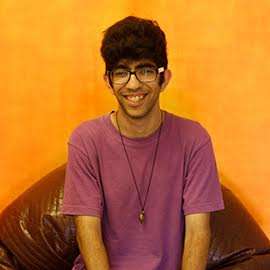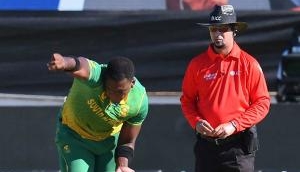
Jagmohan Dalmiya, born on 30 May, 1940, in Kolkata, passed away in in B M Birla Heart Research Centre in the very same city, 75-years later on 20 September, 2015. Dalmiya had not been keeping well for quite some time and was not actively taking part in the day to day functioning of the BCCI.
Dalmiya was born into a Marwari business family and in his early days played wicket-keeper at the club level and his college team, Scottish Church College. He even scored a double century once.
The making of Dalmiya
At the age of 20, he entered the professional arena by joining his father's firm, ML Dalmiya and Co, one of India's top construction firms. It was the firm that went on to construct the M P Birla Planetarium in 1963, about three years after he joined.
That wasn't to be the place where he made a name for himself.
About 19 years after joining his dad's firm, he joined the Board of Control for Cricket in India, in 1979. Along with Inderjit Singh Bindra, the young turks, as they were known, changed the geology of world cricket, shifting the power centre towards the east.
He helped secure the World Cup in India in both 1987 and 1996. Four years after joining the BCCI, Dalmiya was made the treasurer. That was a game changer that brought in money for the BCCI and led the commercialisation of the game through the early '90s, subsequently making the BCCI the richest cricket board on the planet, by far.
Eighteen years after joining the BCCI, Dalmiya was elected chairman of the International Cricket Council in 1997, as the first non-white man. He helped turn around the cash strapped ICC with his knack for striking deals.
Former CEO Malcolm Speed, with whom Dalmiya had many a tussle, admitted that, "He taught the ICC how to capitalise on its new revenue stream."
Three years later though, in 2001, Dalmiya got the boot from the ICC after being embroiled in a TV-rights controversy. In the time that he was president, he led the ICC from having 15,000 pounds in its kitty to 15 million pounds.
True to his nature, he never gave up. A year later, he got himself elected the BCCI president. During his BCCI tenure from 2001-2004, Dalmiya turned the board into something no one could mess with. He changed the notion that the board was a pushover.
The 2005 election was the first time in a quarter-century in cricket administration that he ended up losing. He was ousted by N Srinivasan, Sharad Pawar, Lalit Modi and Shashank Manohar. The man in Dalmiya's corner, Ranbir Singh Mahendra, lost to Sharad Pawar. He was subsequently expelled in 2006 and briefly arrested in a misappropriation of funds (1996 World Cup) case thrown on him by the new regime.
His home ground, Eden Gardens had to make do with less Test and ODIs. During the 2011, the India versus England World Cup match was cancelled by the ICC, which was led by Sharad Pawar at the time.
The return to the BCCI fold
In May 2007, Dalmiya challenged the Bombay High Court decision that expelled him and subsequently challenged it in the Supreme Court. He was absolved when the BCCI couldn't prove the charges levelled against him.
His expulsion from the Cricket Association of Bengal (CAB) was also suspended, allowing him to contest in the 2008 CAB elections, which he won. The BCCI revoked his suspension in 2010. After N Srinivasan stepped aside due to being involved in an Indian Premier League spot-fixing case involving his son-in-law, Dalmiya took over as interim president. Then earlier this year, in March, Dalmiya took over as BCCI president, full-time, once again.
Dalmiya knew the board inside out, a familiarity that helped him win the much-delayed 2014 elections. Since he left the board in 2005, the BCCI had changed significantly. But when Dalmiya stepped in, he felt a familiar frisson.
The time was of Twenty20 cricket, the internet and an explosion of social media. Dalmiya, 74 at the time he became president, was still as sharp and energetic as he was in his younger days. He was an administrator not to be messed with. His adversaries may have fallen by the way-side but it was the BCCI that once again turned to Dalmiya to salvage their pride.
Dalmiya's legacy
Before the Big Four bloc consisting of India, Australia, England and South Africa, Dalmiya had founded cricket's Asian bloc. Dalmiya was authoritarian and patriarchal and looked after his own with many a favour. Dalmiya had that flair with him that helped him discuss, negotiate and eventually get a deal in his favour. When he was at the helm, everyone was happy. Cheques were received on time, meetings were short and to the point. He was a golf-playing, scotch drinking administrator.
He had the courage to challenge and eventually end Doordarshan's monopoly in cricket broadcasting, defying the central government. He was the brain behind the ICC's headquarters shift from London to Dubai, where it currently is. Some have called him the greatest sports administrator of India and almost everyone in the country would agree. He has taken cricket to a level no one has before. He's also been named among the top six sports executives in the world.
He was a man that took cricket into Sri Lanka during its terror-ridden days and was the first to call the South African team after the apartheid ban. He may have one too many roadblocks along the way but he took them all with the glass half full. He looked at each hurdle and figured away beyond it. People loved and admired him, for he fought for Indian cricket. He brought it to where it belongs today. He fought for the players, as was seen with the Mike Denness (match referee during India's tour of South Africa) affair.
We can all concur with what BCCI secretary Anurag Thakur said after Dalmiya passed away, "Mr Dalmiya played a significant part in positioning Indian cricket at the global level and the astute administrator in him guided Indian cricket to greater heights."
His contribution to world cricket will never be forgotten and as the man who gave the game its rightful place in the sporting world, may Jagmohan Dalmiya rest in peace.








![BJP's Kapil Mishra recreates Shankar Mahadevan’s ‘Breathless’ song to highlight Delhi pollution [WATCH] BJP's Kapil Mishra recreates Shankar Mahadevan’s ‘Breathless’ song to highlight Delhi pollution [WATCH]](https://images.catchnews.com/upload/2022/11/03/kapil-mishra_240884_300x172.png)

![Anupam Kher shares pictures of his toned body on 67th birthday [MUST SEE] Anupam Kher shares pictures of his toned body on 67th birthday [MUST SEE]](https://images.catchnews.com/upload/2022/03/07/Anupam_kher_231145_300x172.jpg)






